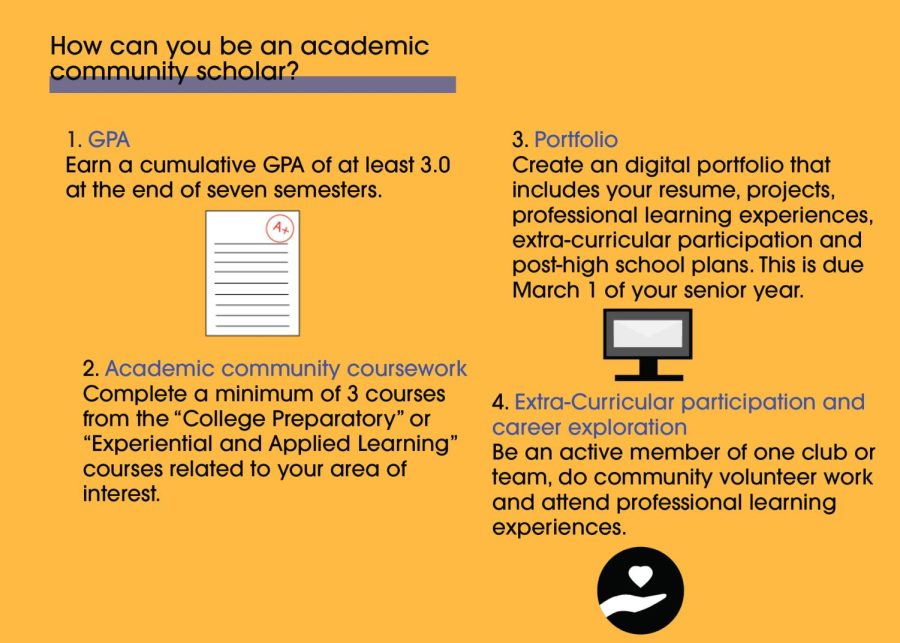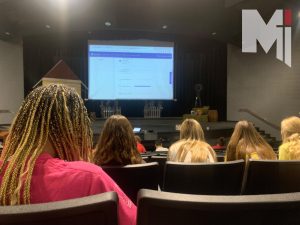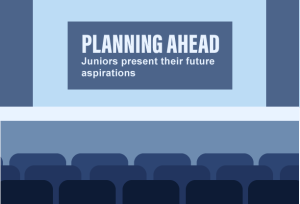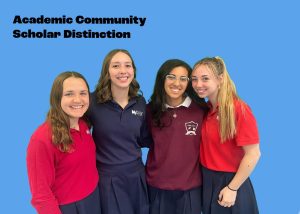Put in the Effort: Join an academic community
Learn about the steps it takes to be an academic scholar.
Since you were young, the question “What do you want to be when you grow up?” comes up in almost every conversation about your future. As a kindergartner, the common answers of astronaut and princess were allowed, but now we need an actual answer.
After four years of high school, students are pressured to know exactly what they want to be. Many still do not know due to the lack of experience in specific job fields.
Now, students have the opportunity to explore their passions and narrow down what they want to do in their futures before they leave for college. Academic communities, new this year, will assist students in navigating their potential careers and gain experience in the fields of their choosing.
Everyone should take advantage of this opportunity and do the work to be in an academic community, even freshmen and sophomores who will be invited to join in the spring.
According to Bridgeport, 20 to 50 percent of people enter college undecided of their major. Academic communities can help you narrow down and solidify your search. Imagine yourself walking into college with already having an idea about your future occupation. You will be ahead of your peers, and you will be proud of yourself.
But the opposite is also true. If you learn about an occupation and decide that it no longer interests you, you will know that before entering college. It is easier to change your mind now, rather than when you are semesters into college.
There are seven academic communities: Human Services and Education; Business and Law; Digital Media and Performing Arts; Faith-Based Service; Health Sciences and Medicine; Engineering and Design; and Computer Science and Information Technology.
To be part of an academic community, students must have a GPA of 3.0 or above, complete a minimum of three courses from the experiential or college classes in their community, create an online portfolio and participate in extracurriculars and career exploration.
Yes, this may seem like a long list to tackle, but in the long run you will be thankful.
Each community has an adviser who specializes in the area of your choosing. Students, definitely take advantage of this opportunity to enhance your understanding of your interests.
On Nov. 2 in the afternoon, students will have the opportunity to visit with their academic community advisers and listen to industry professionals. In the morning, juniors will learn about their junior-led conferences, which administration created this year in conjunction with the academic communities as a push to make sure students are prepared for their careers.
Juniors, even though this is right after a morning of learning, choosing to spend extra time in the afternoon with professionals worth going to. We know that all you want to do is get Chick-fil-A and take the longest nap of your life. Spending more time at school probably sounds like the worst thing ever, but your senior self will thank you for putting in the extra effort now.
Seniors, this day is a college visit day with no school, but it is still important to come to meet with your academic community if you can. If you put in the work, you will receive recognition at graduation and set yourself apart.
At the end of the day, while joining an academic community may seem like an immense addition to an already tight schedule, you won’t regret it. Upperclassmen, you are now starting adulthood in the face, and this opportunity will be sure to give you a greater sense of confidence in that contest.





